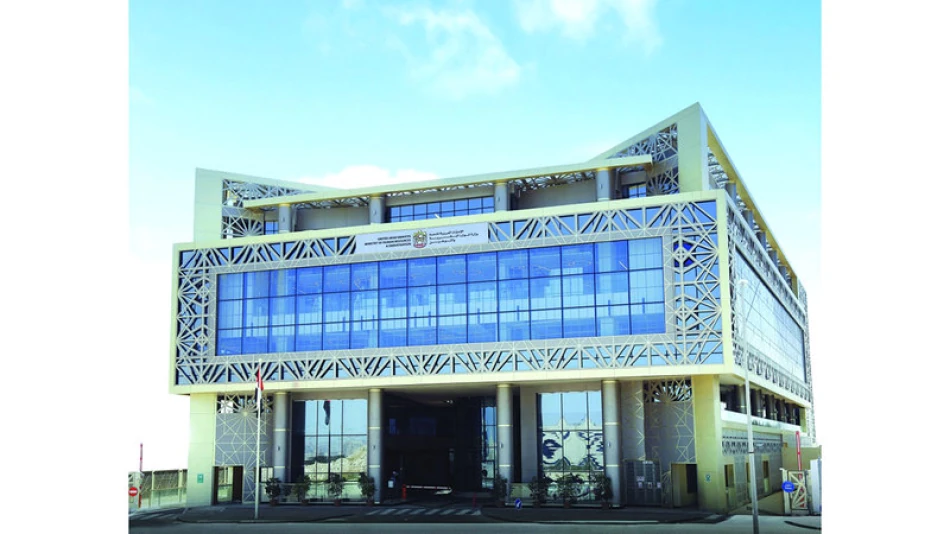
UAE's New Labor Law Drives Entrepreneurship and Competitiveness
UAE's Labor Law Revolution: How Strategic Legislation is Reshaping the Middle East's Employment Landscape
The United Arab Emirates has positioned itself as the region's most competitive labor market through comprehensive employment legislation that balances worker protection with business flexibility. Federal Decree Law No. 33 of 2021 has propelled the UAE to first place in nine global labor market indicators, demonstrating how strategic legal frameworks can drive economic transformation and attract international investment.
A Legislative Framework Built for Global Competition
The UAE's approach to labor regulation represents a fundamental shift from traditional Middle Eastern employment models. Rather than viewing worker protections and business interests as competing priorities, the legislation creates a symbiotic relationship that enhances both employee security and corporate agility.
This balanced framework has delivered measurable results: the UAE now leads global competitiveness rankings in areas including minimal labor disputes, low termination costs, and reduced bureaucratic barriers. For multinational corporations evaluating regional headquarters locations, these metrics translate directly into operational efficiency and cost savings.
International Standards with Local Adaptation
The legislation aligns with International Labour Organization agreements while accommodating the UAE's unique economic and social characteristics. This dual approach allows the country to maintain its cultural identity while meeting global business expectations—a critical factor for attracting Fortune 500 companies and international talent.
Market Impact: The Numbers Tell the Story
The UAE's legislative strategy has generated concrete economic outcomes that distinguish it from regional competitors. New company registrations surged 32.16% in 2024, reflecting increased investor confidence in the country's business environment.
More significantly, the UAE achieved first place globally in workforce growth and international expertise attraction. The country also secured the top position in the Arab world for the 2024 Global Talent Index, according to the International Institute for Development. These rankings matter beyond prestige—they signal to investors that the UAE can deliver the skilled workforce necessary for knowledge economy sectors.
Comparative Regional Advantage
While other Gulf states have introduced labor reforms, the UAE's comprehensive approach sets it apart. Unlike piecemeal regulatory changes seen elsewhere in the region, the UAE's legislation addresses the entire employment ecosystem—from contract flexibility to dispute resolution mechanisms.
The Business Case: Why Employers Are Choosing the UAE
The legislation's employer-friendly provisions have created a compelling value proposition for international businesses. Companies benefit from streamlined termination procedures with clear legal guidelines, reduced end-of-service compensation costs, and flexible human resource management capabilities.
The law also addresses modern business concerns through enforceable non-compete clauses and professional confidentiality protections. These provisions are particularly valuable for technology companies and financial services firms operating in competitive markets.
Reduced Operational Risk
The UAE's first-place ranking in minimal labor disputes represents a significant risk reduction for businesses. Labor conflicts can cost companies millions in lost productivity, legal fees, and reputational damage. By creating effective grievance mechanisms and clear contractual frameworks, the UAE has essentially eliminated this operational risk.
Worker Protections in a Competitive Framework
Despite its business-friendly approach, the legislation maintains robust worker protections that meet international standards. Employees receive comprehensive coverage including wage guarantees, regulated working hours, mandatory leave provisions, and health insurance requirements.
The law explicitly prohibits workplace discrimination and harassment while establishing rapid grievance procedures. This dual approach—strong protections within a flexible framework—has become the UAE's signature contribution to modern labor legislation.
Future Economic Implications
The UAE's labor law success positions the country advantageously for emerging economic sectors. As artificial intelligence, digital transformation, and knowledge-based industries become increasingly important, the ability to attract and retain skilled international talent will determine regional economic leadership.
The legislation's emphasis on flexibility also prepares the UAE for future workforce disruptions. As remote work, gig economy arrangements, and project-based employment become more prevalent, the UAE's adaptable legal framework provides a competitive advantage over more rigid regulatory systems.
Investment Attraction Strategy
For international investors, the UAE's labor market reforms represent more than regulatory compliance—they offer a strategic business advantage. Companies can access skilled global talent, operate with reduced bureaucratic friction, and benefit from a stable employment environment that minimizes operational disruptions.
This combination of factors explains why the UAE continues to attract major corporate relocations and new business formations despite global economic uncertainty. The country has essentially created a premium business environment that justifies its positioning as a regional hub for multinational operations.
Most Viewed News

 Sara Khaled
Sara Khaled






